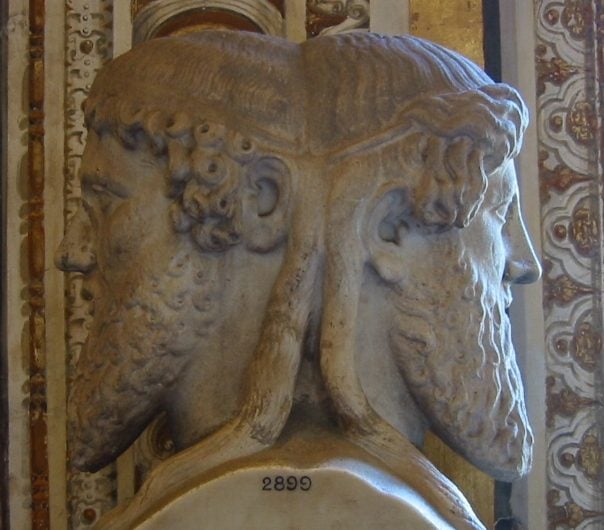
Some of the Lord’s commandments, critics occasionally point out, seem so . . . well, so small. And, in a sense, they are.
I remember once being asked whether I thought that a single cup of coffee would keep me out of the celestial kingdom. And, in a sense, I don’t. But if I were to adopt the attitude that the Lord’s will is unimportant to me, a matter of no consequence, that might.
Right now, too, we’re stewards of what we “own.” We hold these things on trial or probation, as it were. If we are faithful, though, they can be permanently given to us.

(Wikimedia Commons public domain image)
Compare Matthew 6:24
James 1:8 says that “a double minded man is unstable in all his ways,” and that seems to be the same message as given in the passage(s) above.
Also Matthew 12:25: “Every kingdom divided against itself is brought to desolation; and every city or house divided against itself shall not stand.”
The great Danish philosopher Søren Kierkegaard wrote a little book entitled Purity of Heart is to Will One Thing.
I like that title. It suggests that we’re impure until we’ve really made up our minds.
A character in C. S. Lewis’s fine but perhaps under-appreciated novel Till We Have Faces makes the point:
“When the time comes to you at which you will be forced at last to utter the speech which has lain at the center of your soul for years, which you have, all that time, idiot-like, been saying over and over, you’ll not talk about the joy of words. I saw well why the gods do not speak to us openly, nor let us answer. Till that word can be dug out of us, why should they hear the babble that we think we mean? How can they meet us face to face till we have faces?”

(Wikimedia CC public domain image)
To the extent that we serve God in order to gain earthly rewards — e.g., money, public esteem, the approval of members of the opposite sex, glory, or whatever — we’re not really serving God at all.
I suspect that everybody has this problem, at least to some extent, at least at some times. (We all want to be well thought of. Most of us would like to have a bit of money, or security. And so forth. Such desires aren’t necessarily bad in themselves.) The task is to reduce that extent and those times as much as we can. It’s a very difficult undertaking.
“Priestcrafts are that men preach and set themselves up for a light unto the world, that they may get gain and praise of the world; but they seek not the welfare of Zion. . . . But the laborer in Zion shall labor for Zion; for if they labor for money they shall perish” (2 Nephi 26:29, 31).












